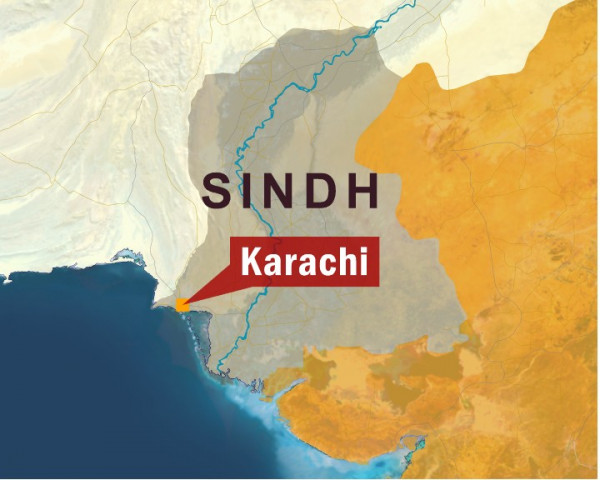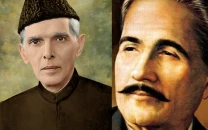Going against the Palestinian cause would have serious consequences for France, says academic
The Arab Spring shows that people wish, want and demand democracy, French CG.

It was uncannily good timing for the Institute of Business Management to hold a seminar on ‘France and Arab World’ on Saturday given the developments in the UN Palestinian President Mahmoud Abbas formally submitted a request to join as a full member state.
The Security Council would need nine votes out of 15 and no veto from any of its permanent members to pass a decision. France could veto it as a permanent member. However, at the seminar Dr Jean-Paul Bled, professor emeritus at University of Sorbonne, Paris, said he hoped the country would support the bid. The dynamics of French foreign policy since March suggest a ‘yes’ vote in the UN, he said, hastening to add, however, that he couldn’t predict the future.
Bled said France could vote against Palestine for two reasons: its close relations with the United States and deep divisions within the European Union over the issue. “A ‘yes’ vote would be in conformity with our policy in the Arab world,” he said, adding that going against the Palestinian cause would have serious consequences for France.
Answering a question, Bled said he was against the Europeanisation of the Arab world. There could be no bigger mistake than the western world trying to shape the Arab Spring. “We have to help, but not impose our own understanding of democracy. Arab countries have to forge their own democracy according to their culture and history,” he told the audience.
For his part, the Consul General of France in Karachi, Christian Ramage, said that the people in the Middle East and North Africa shared core democratic values with the French.
Indeed, the mass uprisings in these regions reflect that Arabs believe in liberty, equality and fraternity - the national motto of France. “The Arab Spring shows that people wish, want and demand democracy,” he said. And France looked forward to forging stronger ties with the Arab world following the Arab Spring.
Ramage chose to touch on the French law against wearing religious symbols in schools, which he pointed out did not target Muslims specifically. “Schools are neutral places. Sikhs are also not allowed to wear turbans,” he explained. He advised Muslims living in France to integrate into mainstream French society: “When in Rome, do as the Romans do.” This is premised on the principle that France wants to ensure the separation of state and religion as a secular country.
Picking up on this thread, IBA Social Sciences chairperson Dr Huma Baqai added that the politicisation of Islam had affected France-Middle East relations. Quoting a recent report, she said that out of four to six million Muslims in France, only 800,000 were practising Muslims. “Yet Islam has become a hot-button issue there.”
“Keeping its secular identity intact, France should stick to its unity-in-diversity policy,” she said, adding that 68 per cent of people who immigrated to France in 2010 were Muslims.
Another guest, Sindh Assembly Speaker Nisar Ahmed Khuhro added that superpowers conquered countries and then sought their cooperation in the past, which led to demands of sovereignty and in some cases world wars. “That period is over. Now is the time for regional cooperation,” he said. “The European Union, Commonwealth and Asean are a few examples.”
IoBM Rector Talib S Karim, former ambassador Shahid M Amin, Habib University Foundation’s Sammar Hassan and IoBM Professor Dr Imdad Shah also spoke.
Published in The Express Tribune, September 25th, 2011.



















COMMENTS
Comments are moderated and generally will be posted if they are on-topic and not abusive.
For more information, please see our Comments FAQ